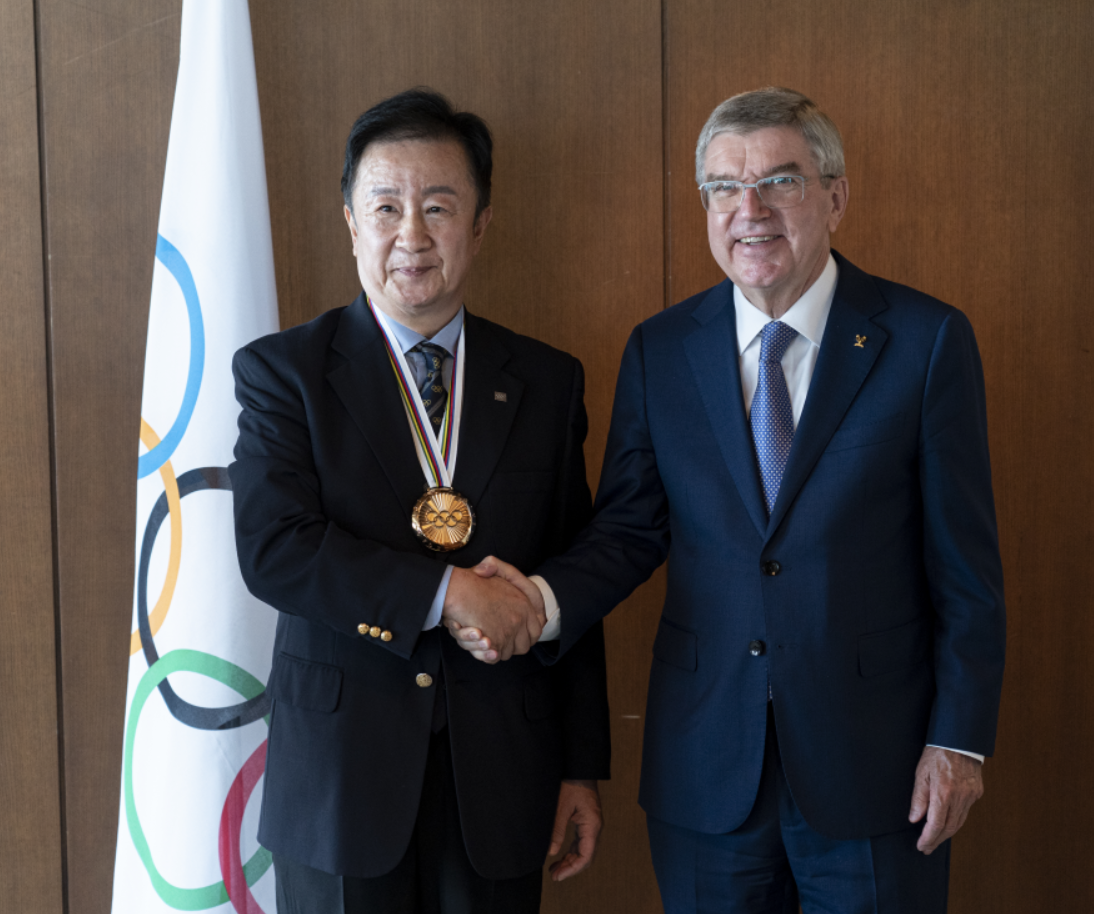자크 로게 IOC위원장은 2001년 모스크바 개최 IOC총회에서 8년 임기의 IOC위원장으로 선출되었다.
8년 임기를 마치는 2009년 코펜하겐 개최 IOC총회에서는 올림픽 헌장에 규정한 4년 짜리 두 번 째 임기를 시작하여 도함 12년 간에 걸쳐 IOC위원장 직을 수행하였다.
그는 12년 임기 동안 2002년 솔트레이크시티 동계올림픽, 2004년 아테네 올림픽, 2006년 토리노 동계올림픽, 2008년 베이징 올림픽, 2010년 벤쿠버 동계올림픽 및 2012년 런던올림픽을 비롯하여 본인의 아이디어로 창시한 2010년 제1회 싱가포르 청소년올림픽(Youth Olympic Games) 및 2012년 제1회 인스부르크 동계청소년올림픽(Youth Olympic Winter Games) 등 3개 동계올림픽과 3개 하계 올림픽 그리고 각각 1개씩의 동 하계 청소년올림픽등을 IOC위워장 자격으로 총괄하고 관장하였다.
또한 2003년에는 프라하 개최 IOC 총회에서 2010년 동계올림픽 개최도시로 밴쿠버를, 2005년에는 싱가포르개최 IOC총회에서 2012년 하계올림픽 개최도시로 런던을, 2007년에는 과테말라 개최 IOC총회에서 2014년 동계올림픽 개최도시로 소치를 그리고 2011년에는 더반 개최 IOC총회에서 2018년 동계올림픽 개최도시로 평창을 각각 선정하여 발표한 바 있다.
오는2013년 9월 12년 IOC위원장 임기를 총 결산하는 제125차 부에노스아이레스 IOC총회(9월7일-10일)에서 작별을 고한다.
IOC위원장으로서 피날레를 장식하는 올 9월 IOC총회에서는 수행해야 할 임기 마지막 주요 임무 세 가지가 남아 있다.
1) 2020년 하계올림픽 개최도시 선정 및 발표(이스탄불, 도쿄, 마드리드 세 후보도시 중 택일)
2) 2020년 하계올림픽 25개 핵심종목과 3개 추가 정식종목(골프 및 럭비는 기 선정)으로 8개 신규후보종목들 중 택일 결정
3) 8년 임기의 차기 IOC위원장 선정 및 발표
자크 로게 IOC 위원장은 자신이 관장한 마지막 올림픽이었던 2012년 런던올림픽을 성공적으로 마치고 자신의 임기 마지막 해인 2013년 초 대한민국을 방문하여 자신이 선장하여 발표한 2018년 동계올림픽 개최지인 평창 현지도 둘러 봄으로써 자신의 올림픽 운동의 발자취를 모두 답사한 셈이다.
개인적으로는 자크 로게 IOC위원장이 2008년 베이징개최 ANOC(Association of National Olympic Committees: 국가올림픽 위원회 총연합회)총회 개회식에서 필자에게 30년 올림픽 운동 발전 기여에 대하여 205개국 NOCs 각국 대표들 앞에서 ANOC 공로훈장을 Mario Vazquez Rana ANOC 회장과 함께 수여해 준 일이다.
이는 개인적으로는 평생 가문의 영광이고 스포츠외교관으로 30년 간 활동한 공로에 대한 국제적인 인정으로 한국최초의 수상자가 되었다는 점 역시 잊지 못할 영예인데 자크 로게 IOC위원장이 축하해 주었다는 점이 의미심장하고 영광스럽게 생각한다.
(좌로부터: Mario Vazquez Rana ANOC회장, 한국최초의 ANOC공로훈장 수상자가 된 필자, Jacques Rogge IOC위원장)
Jacques Rogge: "2012 Achievements Reflect a Decade of Change"

21/12/2012
"As we look back on the past year and ahead to 2013, it is also a good time to take a broader view of where the Olympic Movement has been and where it is going.
Because our Movement is rooted in ancient traditions, change tends to be an evolutionary process. It doesn’t happen overnight, and it is sometimes easy to miss. But I have no doubt that the modern Olympic Movement is stronger than ever as we near the end of its 118th year of existence.
The 2012 London Games embodied many of the changes that have brought us to this point. I have always been reluctant to declare that any Games were “the best ever”, since that is a very subjective judgment; but there is no question that the London Games successfully incorporated the policy priorities that have improved and strengthened our Movement over the past decade.
The London Games raised the bar for legacy planning; advanced the cause of environmental sustainability; set new records for participation by women; and embraced new forms of communication to connect with a global audience in new ways.
The Games were definitely an Athlete’s Games by putting the athletes at the heart of the event, showing us outstanding performances which will inspire the next generation.
The Games reflected the IOC’s determination to reach out to young people, through creative use of social media, exciting new additions to the Olympic programme and the Youth Olympic Games. The competitors in London included 156 veterans of the first Youth Olympic Games in Singapore in 2010. And I have no doubt that Sochi 2014 will include competitors from the first Winter Youth Olympic Games in Innsbruck earlier this year.
In keeping with the IOC’s zero tolerance policy, the London Games featured the most extensive anti-doping testing programme in Olympic history. In another initiative to protect the integrity of sport, we expanded our cooperation with law enforcement agencies and other partners to guard against illegal and irregular betting.
Although most of the work on the London Games occurred during the worst global recession in more than 60 years, the IOC’s financial foundation is stronger than at any time in the history of the Olympic Movement.
The past year also saw new initiatives in other priority areas. We continued to build on our partnership with the United Nations. We moved ahead with a new Youth Olympic Development Centre in Haiti, incorporating lessons learned from a similar successful project in Zambia. We hosted global conferences on women and sport, as well as on sport, education and culture.
All of these milestones and events are a testament to the values and priorities of the modern Olympic Movement in this young millennium. We have accomplished a lot together, but we have much more to do in the year ahead — and I am looking forward to the task."
'스포츠 외교' 카테고리의 다른 글
| 북한여성축구인사 AFC집행위원도전 (0) | 2013.03.04 |
|---|---|
| 아시아축구총연맹(AFC)회장선거 최신판도 (0) | 2013.03.03 |
| IOC, 2013년도 27개 분과위원회 구성완료 발표 (0) | 2013.03.01 |
| 시카고, 애틀랜타, 2024년 올림픽 유치 '노 땡큐!' (0) | 2013.02.21 |
| 레슬링, 올림픽퇴출여파로 세계연맹회장 사퇴결정 (0) | 2013.02.20 |


